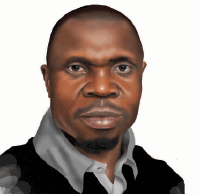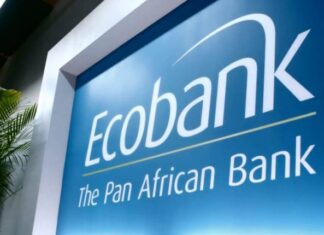The pull has been strong since Tuesday to break the promise I made last week. After the unprecedented political thriller witnessed in the hallowed chambers of the National Assembly on Tuesday, I’ve been feeling like writing about the National Assembly.
Tuesday was when Abuja, the fast decaying political capital of Nigeria, was predictably soaked in high political intrigues that left the victors in applause and the victims in tears. It was a day the weather-beaten PDP successfully, even if momentarily, reinvented itself while the ruling APC watched in wonder.
The deflated Wadata House residents reached out to the depth of their bag of tricks and pulled out a magical wand that dazed the APC beyond measure. PDP, in a flash, made APC leaders look like a bunch of mudslinging teenagers lined up against a Brazilian national soccer team in a world cup final. They may never recover from that blow.
Prior to the Tuesday drama, it was clear that if both Lawan and Saraki would be nominated to vie for the same office, someone would have the audacity to also nominate David Mark of the PDP; and surely he would have won because a divided APC votes would have been less than PDP bloc vote.
I believe the only person in APC who understood this was Saraki. Don’t forget, he is the scion of a political dynasty whose late father still commands loyalty from his followers. The old Saraki led the Second Republic Senate. The young Saraki has gone two steps higher.
Backed by such unquestionable political pedigree, Saraki quickly moved to have Mark on his side. Together they plotted and won. What happened on Tuesday is a lesson to APC. When you have a party where the leader is not only different from the president but is more powerful than the chairman, there is bound to be a problem. APC is like a battalion with many commanding posts. Sorry, I will return to this another day.
So, on May 29, Muhammadu Buhari made a speech. What did he say; and how did he say it? Buhari made an inaugural speech and left us with two rather weak quotable quotes. The first was: “I belong to everybody, and I belong to nobody” It was a coded message to the leaders of the APC and the financiers of his electioneering campaign.
These are people who were prepared from the beginning to put the new administration in their pockets by making lousy demands, using their financial contributions to the party and the electioneering campaign as a tool of blackmail. Buhari left them deflated with one quotable quote.
He was also saying: I am not for Muslims. I am not for Christians. I am not for Hausa-Fulani or any other ethnic group. I am for everybody. That statement drew applause from the crowd although it neither represented nor expressed any tangible policy decision of the new administration.
The second quote was more reassuring. After a political examination of the country’s problem, Buhari tried to speak like JFK: “We must not succumb to hopelessness and defeatism. We can fix our problems.” It was a rephrase of what we heard 31 years ago when he said we have no other country than Nigeria, we must remain here and salvage it together.
In the absence of anything stronger and hope-raising in the whole speech, here was a quotable quote that went beyond political sentiments and ethnic bias. It touched on the real issues affecting every Nigerian. There was something about the statement that went beyond mere rhetoric. It was inspiring even if it lacked any element of surprise; it was big; in the absence of something bigger.
That statement also set a lonely tone on the resolve of the incoming administration not to flee from but to take challenges head-on. In addition, the statement captured the moment and revealed the character and intentions of the president.
What else did the speech reveal? Certainly, there was nothing more to it. No other quotable quotes; nothing unusual; nothing surprising; nothing worth remembering. Whatever else we heard were mere rehash of what we already knew—corruption, unemployment, lack of power supply, etc.
Nigerians expected Buhari to make an emotive speech; a speech that would touch on the nerve-centre of our existence; a speech that would spark off debates and expectations on the way forward; a speech that would ignite hope and announce the dawn of an era.
In the words of Tom Clark, editor of Great Speeches of the 20th Century, we waited in vain for a speech that would deploy forensic rigour enlivened with wit; a speech that would paint a picture of what a better Nigeria might be like. Such speeches are usually given by those to whom society is ready to listen. Nigerians were ready for Buhari on May 29.
We all know that not everyone is gifted with compelling oratory. Buhari is one of them. Add this deficiency to a small speech when and where a big one is required, and you will understand my disappointment.
In frustration, I’m persuaded to ask like Clark: “Where today amongst our vapid leaders are men and women whose words set hearts racing, turn battles, inspire populations to extraordinary endeavour? When did we last hear a speech that made us want to thump the air, a speech that reduced us to unashamed tears, a speech that resolved us to action?”
It’s been long. That’s the speech Buhari should have given.













